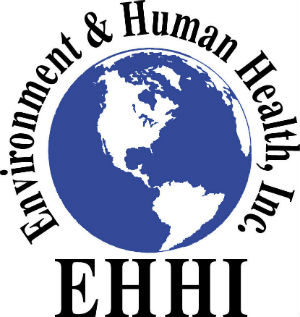Breast Cancer: Press Release
EHHI designed a study to investigate what three different ethnic groups—African Americans, Hispanics and Caucasians—saw as their most significant risk factors for breast cancer. This information was then compared to the state of the science about the risk factors for the disease. The study includes a survey that over-sampled the African-American and Hispanic populations in order to obtain an accurate representation of opinions in these groups. Some important findings of the study are: Most women surveyed believed that over 50% of women who develop breast cancer have a close relative with the disease. The actual fact is that only about 15% to 20% of women who get breast cancer have a significant family history of the disease. This misconception is important to understand because women surveyed also said that if they knew that so many women with breast cancer had no family history of the disease, they would be more diligent about getting mammograms. This gap in knowledge about breast cancer risk is one that needs to be addressed. It appears generally known that white women have a higher rate of breast cancer than African Americans. What was less well appreciated, according to EHHI’s survey, is that there is a higher incidence of the disease among young black women than among young white women. This fact is extremely important because early-onset breast cancer is often more aggressive and more often fatal. For this reason and others less well understood, black women die of breast cancer at a higher rate than white women. These facts might lead to recommending that African American women go for earlier screenings. Another area of misconception uncovered is that women thought smoking was an important risk factor for breast cancer, placing it right below having a family history of the disease. Yet there is little evidence that smoking has any effect on the development of breast cancer—although there are many other health-related reasons for not smoking! On the other hand, women ranked obesity much lower, though it has a strong effect on breast cancer risk and may also reduce the likelihood of successful treatment. “Women underestimated reproductive risks factors for breast cancer such as age of first menstruation, age at which a woman has her first child, and not having breast-fed, while they overestimated factors such as eating a high-fat diet, smoking and contraceptives,” said Dr. D. Barry Boyd, oncologist and affiliate member of the Yale Cancer Center. Almost half the women surveyed did not know that Connecticut had a very high rate of breast cancer. In fact, Connecticut has one of the highest rates of breast cancer in the country. According to the American Cancer Society’s Facts and Figures 2003, Connecticut had the highest rate in the nation, and in the 2006 edition Connecticut ranked fourth. “This information is important to know because if women better understood that Connecticut had very high rates of breast cancer they might be more diligent about their screening,” said Dr. Mark Cullen, professor of Medicine and Public Health at the Yale University School of Medicine. Breast cancer is a disease that continues to afflict a growing number of women of all ethnic backgrounds in the United States. With over 212,000 women in the U.S. projected to be diagnosed with breast cancer this year, it is imperative that medical researchers and public health officials put their energies and resources into prevention as well as into cure. “The purpose of this project was to uncover the knowledge gaps among the various ethnic groups with respect to the risk factors and prevention strategies for breast cancer and to propose strategies to fill those gaps,” said Nancy Alderman, President of Environment and Human Health, Inc. “If the public is armed with more complete information about breast cancer, women of all ethnic backgrounds will have a better chance for improving their outcomes.” John Wargo, professor of Risk Analysis and Environmental Policy at the Yale School of Forestry and Environmental Studies added, “Although scientific evidence remains ambiguous regarding the association between breast cancer and environmental carcinogens, experts agree that at least 240 different chemicals are known or reasonably anticipated to be carcinogenic in our environment. Tens of thousands of additional chemicals have not yet been tested individually or as mixtures to know their effect in inducing cancer. Expert understanding of the carcinogenic effects of exposure to chemicals present in the environment is primitive at best. Given this enormous uncertainty, it seems prudent for all people to reduce their exposures to recognized carcinogens including some pesticides, solvents, air and water pollutants, until an effect by environmental contaminants has been disproved. The absence of evidence of an association between environmental contaminants and breast cancer is not evidence of absence of their risk. Much work remains to be done in this area.”
